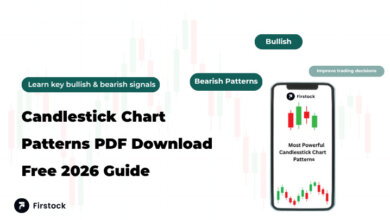SAFE Investment: A Smarter Way to Back Early-Stage Startups

For angel investors and startup founders alike, understanding the right funding instruments is crucial. One of the most popular mechanisms today is the SAFE investment (Simple Agreement for Future Equity). Originally introduced by Y Combinator in 2013, SAFE agreements have become a preferred option in the early stages of startup financing. They are designed to simplify the investment process, reduce legal complexity, and align both founder and investor interests for Angel School.
In this guide, we’ll break down what SAFE investments are, how they work, and why they’ve become such a popular choice in the startup ecosystem.
What Is a SAFE Investment?
A SAFE (Simple Agreement for Future Equity) is a financial contract between an investor and a startup. Instead of purchasing equity outright at the time of investment, investors provide capital in exchange for the right to receive equity in the future, typically when the company raises a priced equity round (like a Series A).
In short:
-
The investor gives money today.
-
The startup promises equity later, once the company’s valuation is established.
This creates a win-win: startups can access early capital without needing to determine their valuation too soon, and investors can secure early entry into high-growth opportunities.
How SAFE Investments Work
SAFE agreements are relatively straightforward compared to traditional equity financing. Here’s how the process typically unfolds:
-
Investor provides capital → The investor puts money into the startup under a SAFE contract.
-
No immediate equity exchange → Instead of shares, the investor holds the SAFE agreement.
-
Conversion into equity → During the next priced funding round, the SAFE converts into preferred shares.
-
Terms applied → Depending on the agreement, terms such as valuation caps and discounts determine how much equity the investor receives.
This simplicity has made SAFE investments especially appealing in the early stages, where both speed and cost-efficiency are critical.
Key Terms in SAFE Investments
When structuring or reviewing a SAFE agreement, investors should pay attention to the following terms:
1. Valuation Cap
This sets the maximum valuation at which the SAFE will convert to equity. It ensures early investors are rewarded for taking on greater risk by securing a better equity position.
2. Discount Rate
Some SAFEs include a discount (e.g., 20%), allowing early investors to buy shares at a reduced price compared to future investors in the next funding round.
3. No Interest or Maturity Date
Unlike convertible notes, SAFEs don’t accrue interest and typically don’t expire. This makes them simpler and less burdensome for founders.
4. Pro-Rata Rights
In some cases, SAFEs give investors the right to participate in future financing rounds, helping them maintain their ownership percentage.
Benefits of SAFE Investments
For Startups
-
Speed and simplicity: Easier to negotiate and execute than equity rounds.
-
Cost-effective: Lower legal and administrative expenses.
-
No immediate dilution: Founders don’t have to give up equity right away.
For Investors
-
Early entry advantage: Opportunity to secure favorable equity terms in high-potential startups.
-
Lower negotiation burden: Standardized agreements reduce back-and-forth.
-
Protection through valuation caps: Ensures fair equity conversion in future rounds.
Risks and Considerations
While SAFE investments offer simplicity, they also come with risks:
-
Uncertainty in equity percentage → The final ownership depends on future valuations, which may dilute early investors more than expected.
-
Lack of control rights → SAFEs usually don’t grant voting rights or board seats.
-
Startup risk factor → As with all angel investing, there’s the possibility that the startup may fail before any conversion happens.
For these reasons, investors should carefully assess the startup’s potential and negotiate terms that align with their investment goals.
SAFE vs. Convertible Notes
Many investors wonder how SAFEs compare to convertible notes. While both delay equity issuance until a later funding round, there are key differences:
-
Convertible Notes are debt instruments with interest and maturity dates.
-
SAFEs are not debt, meaning there’s no repayment obligation and no interest accrual.
This distinction makes SAFEs more founder-friendly, though some investors prefer the additional protections that convertible notes offer.
Why SAFE Investments Are Popular with Angel Investors
Angel investors often operate at the riskiest and earliest stages of a startup’s journey. SAFE agreements make these deals faster, simpler, and more cost-efficient. For angels, SAFEs provide:
-
Streamlined access to equity without overcomplicating legal negotiations.
-
Early-bird benefits through valuation caps and discounts.
-
Alignment with founder growth by postponing valuation debates until later funding rounds.
In essence, SAFEs enable angels to act quickly while still preserving upside potential.
Final Thoughts: Is SAFE Investment Right for You?
For angel investors exploring early-stage opportunities, SAFE investments offer an efficient, standardized, and founder-friendly way to participate in startup growth. They balance the need for simplicity with protective measures like valuation caps, making them one of the most widely used financing tools in the modern startup ecosystem.
However, like all investments, SAFEs come with risks. The key is to understand the terms clearly, diversify across multiple startups, and view SAFE investments as part of a long-term angel investing strategy.




